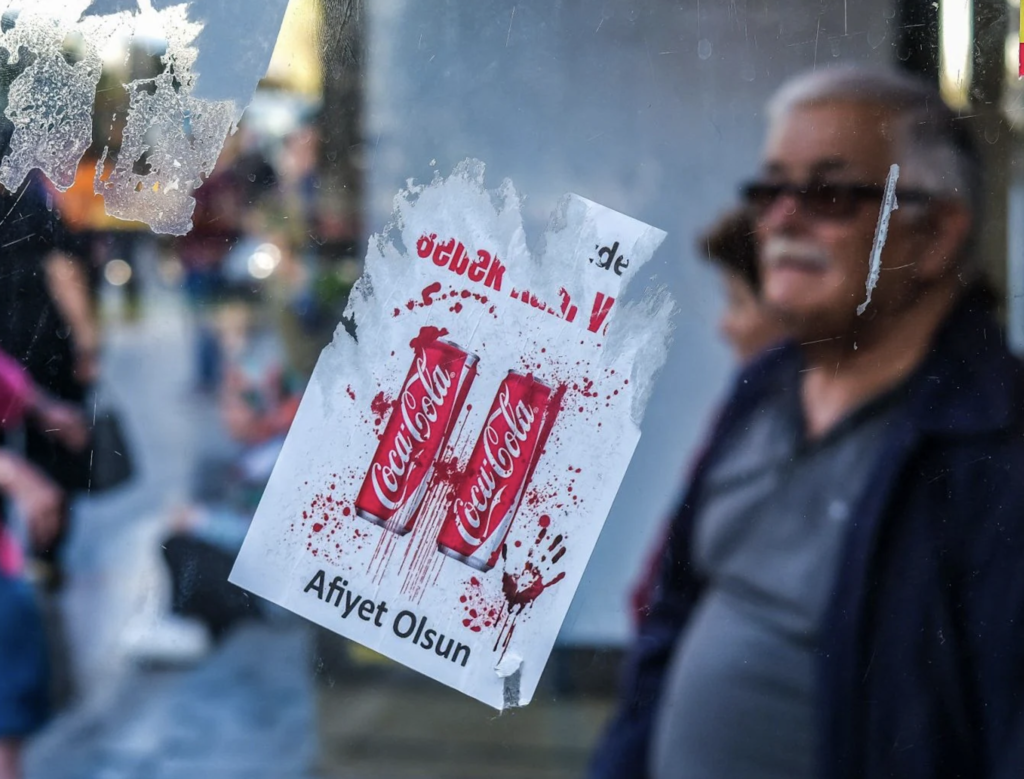Coca-Cola Sales Drop Amid Allegations of Involvement in Israel-Palestine Conflict
Coca-Cola, a global leader in the beverage industry, is confronting a significant sales downturn amid mounting controversy surrounding its alleged business ties to Israel in the context of the Israel-Palestine conflict. The issue has sparked intense debate and triggered consumer backlash, impacting both the company’s market performance and its public image.
Controversy:
The controversy escalated following calls from pro-Palestinian advocacy groups and social media campaigns urging boycotts of Coca-Cola products. These groups accuse the company of maintaining relationships with Israeli beverage companies operating in settlements located in the occupied Palestinian territories, which are considered illegal under international law. These allegations have resonated widely, particularly in regions where the conflict holds significant political and social resonance.
Reports:
Reports indicate that Coca-Cola has observed a notable decline in sales in certain markets where the boycott movement has gained traction. This downturn reflects consumer concerns over corporate responsibility and ethical considerations in conducting business operations within conflict-affected regions.
Ethical Business:
In response to the controversy, Coca-Cola has reiterated its commitment to ethical business practices and compliance with all applicable laws and regulations. The company asserts that it adheres to rigorous standards of corporate governance and upholds human rights across its global supply chain. However, these assurances have not fully assuaged critics, who continue to question the company’s involvement in politically sensitive areas.

The situation highlights the complex challenges faced by multinational corporations operating in geopolitically sensitive environments. Coca-Cola, known for its extensive global presence and iconic brands like Coca-Cola, Sprite, and Fanta, must navigate a delicate balance between business interests and societal expectations regarding corporate ethics and social responsibility.
Moving forward, the outcome of this controversy remains uncertain as Coca-Cola seeks to address consumer concerns and rebuild trust. The company’s response will be closely monitored by stakeholders, including investors, advocacy groups, and consumers, amid ongoing geopolitical tensions and evolving public sentiment.
As Coca-Cola navigates these challenges, its actions and commitments in response to the Israel-Palestine controversy will likely influence its long-term brand reputation and market dynamics. The company’s ability to effectively manage these issues while maintaining its global operations and consumer trust will be critical in shaping its future trajectory in the competitive beverage industry.